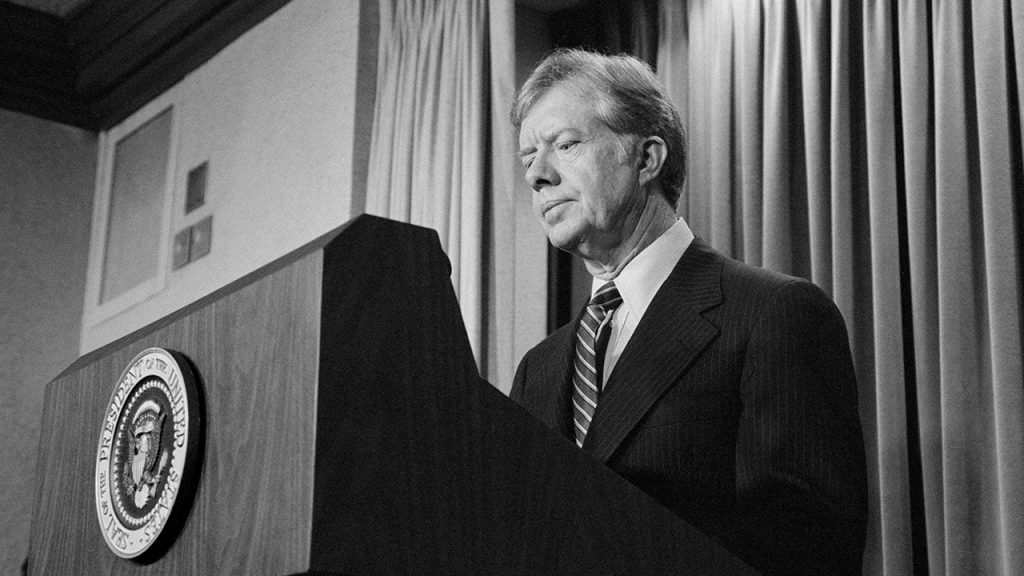Former President Jimmy Carter passed away at the age of 100, prompting many to recall the infamous “killer rabbit” incident that occurred in April 1979. The bizarre event took place in Plains, Georgia, where Carter was fishing, and a large rabbit started swimming towards him. Despite Carter’s more subdued account of the incident, the story quickly gained national attention and came to be seen as emblematic of his struggling presidency. Sensationalized headlines and cartoons depicting giant rabbits added to the myth surrounding the incident.
In the midst of his one-term presidency, Carter faced numerous challenges both at home and abroad, including an energy crisis, economic issues, and the Iran hostage crisis. As his approval ratings plummeted, the “killer rabbit” incident served as a metaphor for his perceived weakness and ineptitude as a leader. Despite the comical nature of the story, it was used by the press to paint Carter as a President who even feared a bunny, further damaging his reputation during a difficult time in his presidency.
The story of the “killer rabbit” was initially shared by then White House Press Secretary Jody Powell with a reporter, but Powell later regretted his decision to do so. In his memoir, Powell described the incident as a “nightmare” and admitted that he should have stopped the story from being circulated as it was used to undermine Carter’s credibility as a leader. The humorous tale ended up being a source of embarrassment for the President, particularly during a time when his presidency was facing significant challenges.
Despite the negative connotations associated with the “killer rabbit” incident, Carter continued to serve as a dedicated public servant throughout his life. As the longest-living President in U.S. history, he was known for his significant humanitarian efforts and was awarded a Nobel Peace Prize in 2002. Carter’s legacy extended far beyond the humorous anecdote that overshadowed part of his presidency, and he was remembered as a great humanitarian who dedicated his life to service and peace.
The “killer rabbit” incident, while largely seen as a tall tale, was a moment that encapsulated a challenging period in Carter’s presidency. From fighting off a swamp creature to battling criticism and disapproval, Carter persevered through difficult times with dignity and grace. Despite the negative portrayal by the media, Carter’s legacy as a champion of peace and human rights continued to shine through, far beyond the shadow of a giant rabbit.
In the wake of Carter’s passing, tributes poured in from congressional lawmakers and sports figures, recognizing his contributions to American history and global diplomacy. While the “killer rabbit” incident may have captured the public’s imagination for a brief moment, Carter’s true impact as a dedicated public servant and advocate for peace is what ultimately defined his legacy. As the nation mourned the loss of a former President who left an indelible mark on history, it was clear that Carter’s enduring legacy would far outlive the infamous “killer rabbit” story that briefly overshadowed his presidency.














